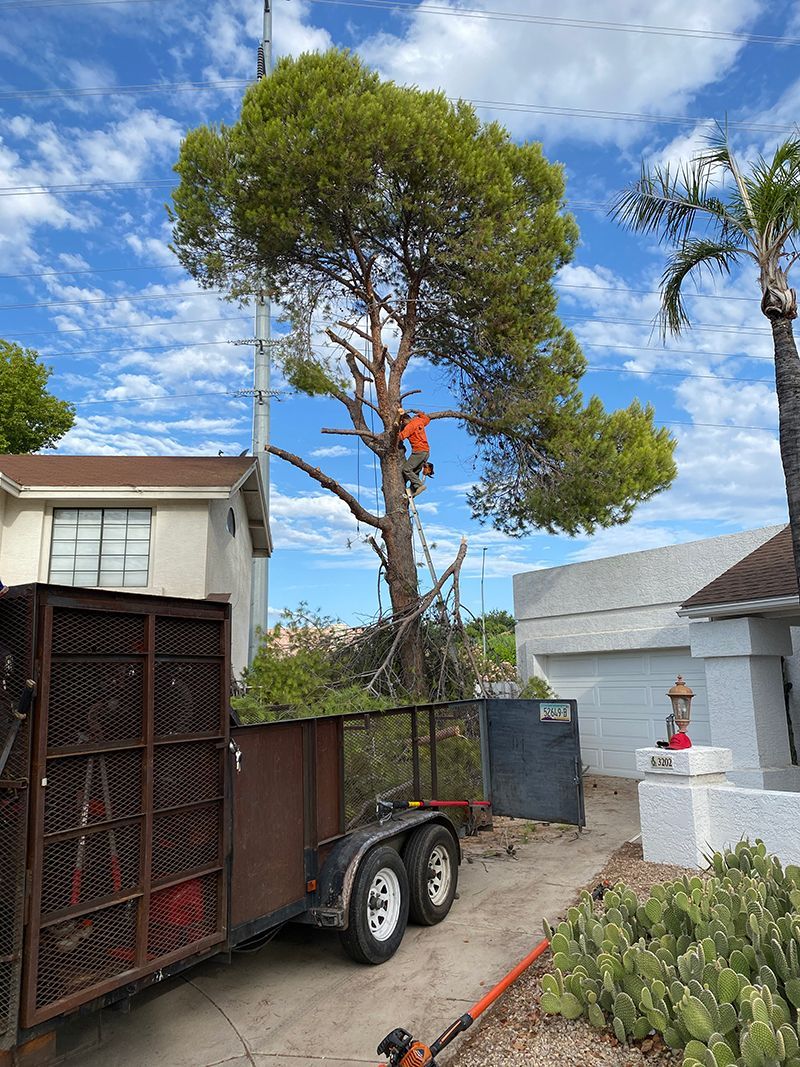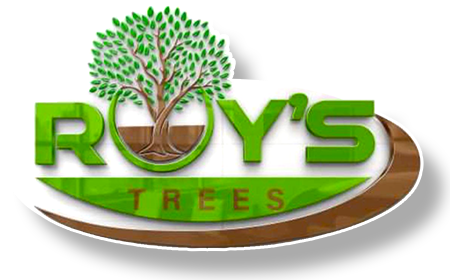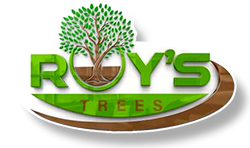Common Signs that a Tree Is Creating a Safety Risk

Trees are an integral part of our landscapes, providing beauty, shade, and environmental benefits. However, when a tree becomes compromised, it can pose a significant safety risk to your property and the people around it. Recognizing the warning signs that a tree is creating a safety hazard is crucial for preventing accidents. At Roy’s Trees, our local arborists are experts at identifying and removing hazardous trees in the greater Phoenix area. Here are five signs that a tree may be a danger and requires immediate attention.
Leaning
While some trees naturally grow at an angle, a pronounced lean can indicate structural instability, especially if the lean has developed recently. This could be due to root damage, soil erosion, or internal decay, all of which weaken the tree's ability to stay upright. If you notice a tree on your property leaning significantly, it's important to have it assessed by the arborist to determine if it poses a risk of falling.
Cracked or Split Trunk
Cracks or splits in the trunk of a tree are indications of potential danger. These can be caused by storm damage, disease, or internal decay, weakening the tree's structural integrity. A tree with a cracked or split trunk is more likely to break apart, especially during strong winds or storms, posing a threat to nearby structures, vehicles, and people.
Dead or Hanging Branches
Dead or hanging branches are a common hazard in trees. Dead branches can become brittle and eventually break off, posing a risk of injury or property damage. Even living branches that are hanging loosely can be a safety concern, especially if they are large or located over high-traffic areas like driveways, sidewalks, or play areas.
Root Damage
The health of a tree's root system is critical to its overall stability. Root damage can occur from construction or soil compaction. Signs of root damage may include exposed roots, fungal growth near the base of the tree, or a sudden decline in the tree's health, such as yellowing leaves or thinning canopy. A tree with compromised roots is more susceptible to falling, especially in adverse weather conditions.
Proximity to Power Lines or Structures
Trees growing too close to power lines or structures can become significant safety hazards. Branches that come into contact with power lines can potentially lead to electrical outages or even fires. Regularly trimming and maintaining trees near power lines and structures is crucial to prevent these potential hazards. In some cases, removal may be necessary to ensure the safety of your property.
Tree Removal in Phoenix, AZ
For tree removal in Phoenix and the surrounding area, contact Roy’s Trees at 602-881-2775. Feel free to give us a call today to request an estimate for tree removal in greater Phoenix!


